12 Apr2016
By Rodrick Lucero
 Educators Rising, the national network supporting high school students who are interested in the education profession, seeks comment on its brand-new draft standards by April 24.
Educators Rising, the national network supporting high school students who are interested in the education profession, seeks comment on its brand-new draft standards by April 24.
In partnership with the National Education Association, Educators Rising is coordinating an effort to back-map the road to accomplished teaching into the “pre-preservice” secondary space. Using a committee process modeled after the National Board for Professional Teaching Standards, Educators Rising brought together accomplished practitioners to draft strong standards for what teenagers should know and be able to do to demonstrate they are developing the skills and dispositions of effective educators.
29 Mar2016
By Kristin McCabe
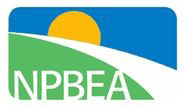 The National Policy Board for Education Administration (NPBEA) has officially assumed leadership for the Professional Standards for Educational Leaders (PSEL) 2015, a revision of the former Interstate School Leaders Licensure Consortium (ISLLC) standards. The standards were formerly owned by the Council of Chief State School Officers, which worked with NPBEA to update the document last year with extensive public input.
The National Policy Board for Education Administration (NPBEA) has officially assumed leadership for the Professional Standards for Educational Leaders (PSEL) 2015, a revision of the former Interstate School Leaders Licensure Consortium (ISLLC) standards. The standards were formerly owned by the Council of Chief State School Officers, which worked with NPBEA to update the document last year with extensive public input.
"Leaders in higher education and principals at all levels of the K-12 continuum engaged in a thoughtful, deliberative process based on the reality of the contemporary principal’s work," said JoAnn Bartoletti, NPBEA president and executive director of the National Association of Secondary School Principals. "Our consensus is that the new standards are aspirational, reflect the complexity of school leadership, and filter the principal’s work through a lens of student-centered practice. They recognize the importance of cultural responsiveness in the context of a role that addresses the needs of each student."
29 Mar2016
By Rodrick Lucero
AACTE is excited to collaborate with the Association of Teacher Educators and the Gay, Lesbian, and Straight Education Network in a national outreach effort to determine how we can best support teacher preparation programs in training future educators to work with LGBTQ (lesbian, gay, bisexual, transgender, and queer) students. Working together, we have created a survey that we now invite you to complete.
We recognize that there is little information about how to best support teacher educators in this arena and many educators, for numerous reasons, may not be addressing these issues. Although there are pockets of excellence leading this work, few teacher preparation programs require LGBTQ issues to be included in their overall diversity initiatives. Through this survey, we hope to learn more about how LGBTQ issues are (or are not) being addressed across the country, raise models of excellence, and provide guidance for programs that are asking for support. As a token of appreciation, survey takers will be entered into a lottery to win Amazon.com gift certificates or free AACTE Annual Meeting registration!
18 Mar2016
By Linda McKee
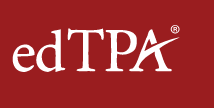 The growing conversation, contentious or not, in the teacher preparation community at large about how to prepare great educators is good for the profession and PK-12 students—and is also helping to improve edTPA support and assessment, Stanford University’s Ray Pecheone told 350 educators at the recent AACTE Annual Meeting.
The growing conversation, contentious or not, in the teacher preparation community at large about how to prepare great educators is good for the profession and PK-12 students—and is also helping to improve edTPA support and assessment, Stanford University’s Ray Pecheone told 350 educators at the recent AACTE Annual Meeting.
Pecheone, executive director of the Stanford Center for Assessment, Learning, and Equity (SCALE), said during the February 25 edTPA breakfast session, “The fact that the profession is having this dialogue about what makes an effective teacher is critical. Engage it! Embrace it! Through this dialogue edTPA has gotten better. It’s a continuous improvement model.”
15 Mar2016
By Michelle Kotek
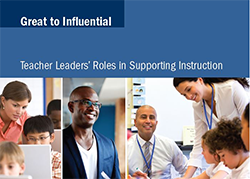 A new study from the National Network of State Teachers of the Year (NNSTOY) introduces compelling research on the characteristics of teacher leaders and factors that challenge or support them. The report, Great to Influential: Teacher Leaders’ Roles in Supporting Instruction, follows up on the 2014 study From Good to Great: Exemplary Teachers Share Perspectives on Increasing Teacher Effectiveness Across the Career Continuum. In light of the new study’s findings, the report suggests strategies for school districts to capitalize on the assets presented by teacher leaders, ranging from providing broader career path options to increasing their interaction with preservice and novice educators.
A new study from the National Network of State Teachers of the Year (NNSTOY) introduces compelling research on the characteristics of teacher leaders and factors that challenge or support them. The report, Great to Influential: Teacher Leaders’ Roles in Supporting Instruction, follows up on the 2014 study From Good to Great: Exemplary Teachers Share Perspectives on Increasing Teacher Effectiveness Across the Career Continuum. In light of the new study’s findings, the report suggests strategies for school districts to capitalize on the assets presented by teacher leaders, ranging from providing broader career path options to increasing their interaction with preservice and novice educators.
11 Mar2016
By Sungti Hsu
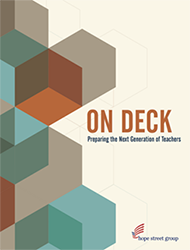 A new survey report from the Hope Street Group (HSG) presents perspectives of nearly 2,000 classroom teachers on their own preparation and that of future educators, aiming to inform both preparation program improvement and state and federal policy. The report, On Deck: Preparing the Next Generation of Teachers, asks whether teachers are being prepared effectively for the realities of today’s classrooms and what changes to curriculum, clinical experiences, and accountability measures might be needed.
A new survey report from the Hope Street Group (HSG) presents perspectives of nearly 2,000 classroom teachers on their own preparation and that of future educators, aiming to inform both preparation program improvement and state and federal policy. The report, On Deck: Preparing the Next Generation of Teachers, asks whether teachers are being prepared effectively for the realities of today’s classrooms and what changes to curriculum, clinical experiences, and accountability measures might be needed.
The study was conducted by 18 HSG National Teacher Fellows, who are practicing classroom teachers and instructional coaches from 17 states. Last fall, they collected data through surveys and focus groups from other practicing teachers in their regions on their experiences and perceptions of how well teacher preparation providers are doing. Participating teachers ranged from 1 to 31 years of experience and came from all grade levels and subjects and from rural, urban, and suburban settings.
09 Mar2016
By Kristin McCabe
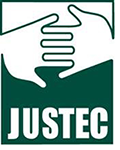 The 28th annual seminar of the Japan-U.S. Teacher Education Consortium (JUSTEC) will be held November 4-7, 2016, at Japan’s Ehime University. Conference organizers invite proposals for paper and poster presentations by May 15 under the theme “Collaborative Teacher Education With Local Communities.”
The 28th annual seminar of the Japan-U.S. Teacher Education Consortium (JUSTEC) will be held November 4-7, 2016, at Japan’s Ehime University. Conference organizers invite proposals for paper and poster presentations by May 15 under the theme “Collaborative Teacher Education With Local Communities.”
This year’s theme is conceptualized this way:
When we look at trends in formal education, the centralized administrative approach prevails more and more in both the United States and Japan. Such an approach has been pointed out by a number of reports to often produce detachment of teachers’ practices from local conditions and needs. On the other hand, when we look into region-oriented alternative approaches, we can still discover a considerable number of successful cases with alternative methods. JUSTEC 2016 sets a conference theme, “Collaborative Teacher Education with Local Communities,” to explore regionally developed teacher education practices, created with local schools and related parties.
09 Mar2016
By Jolanda M. Westerhof
 The American Association of State Colleges and Universities (AASCU) invites applications for the Christa McAuliffe Excellence in Teacher Education Award, which honors exemplary teacher education and professional development programs at AASCU-member public colleges and universities. The submission deadline for this year’s award is April 22.
The American Association of State Colleges and Universities (AASCU) invites applications for the Christa McAuliffe Excellence in Teacher Education Award, which honors exemplary teacher education and professional development programs at AASCU-member public colleges and universities. The submission deadline for this year’s award is April 22.
To win this award, teacher education and professional development programs at AASCU institutions must not only demonstrate effectiveness in producing PK-12 learning outcomes; award winners must also demonstrate and explain how they have redesigned their programs as a result of these PK-12 learning outcomes (including, but not limited to, state data—when and where this is available).
08 Mar2016
By Sharon Robinson
As performance assessment of teacher candidates becomes more widespread and as more video evidence is collected in classrooms, we have to make sure that everyone involved with these videos—and other artifacts assembled for assessment purposes—understands how they may and may not be used. I’m pleased to report that a broad base of educators, convened by AACTE to bring various stakeholders’ perspectives to the discussion, is making promising strides to help safeguard the personal information of both teacher candidates and the students in their classes.
I wrote about the importance of this topic last year (see “Safeguarding Student Data Is Everyone’s Business”), celebrating the White House’s call for heightened attention to protecting students’ digital privacy. The whole education field must engage in this campaign, and AACTE takes its role seriously. Since last fall, we have been convening an Information Privacy Task Force to develop principles regarding the secure and ethical use of classroom video and associated materials collected in performance assessments of newly prepared teachers.
08 Mar2016
By Amanda Zullo
As a practicing high school classroom teacher, I have made it a point to be aware of educational happenings. When the Common Core standards were introduced I learned what they were and whom they affected and thought about the impacts on how I would teach the upcoming students. As edTPA and other higher education reforms began to occur I registered to score edTPA to learn about what it was. I continued to monitor the higher education landscape from a distance. I remained in close contact with three institutions of higher education where conversations would dabble in shifts but never seemed to be too urgent.
Looking from the outside in, it is easy to deduce why you think certain things are occurring. Prior to attending the AACTE Annual Meeting, I had some experience working in teacher preparation during the summer and by hosting preservice teachers. I updated my knowledge of changes in law during my fall focus groups, researched factors impacting teacher preparation that connected findings from our Hope Street Group Teacher Preparation Report, and even spoke with individuals who worked within teacher prep at various universities within New York State. I perceived myself as well informed with (as always) some room for growth.
08 Mar2016
By Melvin Bogard
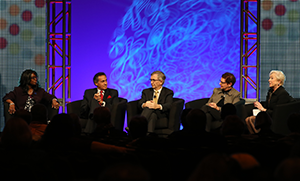 The AACTE Speaker Spotlight Session ended the 68th Annual Meeting February 25 by focusing on the tough questions facing educator preparation across the nation. Panelists urged the audience to tackle complex issues by addressing them as a community, going beyond a one-dimensional viewpoint. They expressed what they saw as the greatest challenges facing the field, ways to enhance the educator pipeline, and models that will foster growth within the education workforce.
The AACTE Speaker Spotlight Session ended the 68th Annual Meeting February 25 by focusing on the tough questions facing educator preparation across the nation. Panelists urged the audience to tackle complex issues by addressing them as a community, going beyond a one-dimensional viewpoint. They expressed what they saw as the greatest challenges facing the field, ways to enhance the educator pipeline, and models that will foster growth within the education workforce.
The panel was moderated by Nancy Zimpher, chancellor of the State University of New York. Panelists included National Board Certified Teacher Cheryl Redfield from Highland Junior High (AZ); Daniel A. Domenech, executive director of AASA: The School Superintendents Association; Anthony S. Bryk, president of the Carnegie Foundation for the Advancement of Teaching, and Carol Basile, dean and professor in the College of Education at the University of Missouri Saint Louis.
01 Mar2016
By Zachary VanHouten
Just a few days remain to apply for the 2016 Holocaust Institute for Teacher Educators (HITE), a week-long, all-expenses-paid professional development opportunity in June at the U.S. Holocaust Memorial Museum in Washington, DC. Applications close Friday, March 4!
AACTE member faculty are invited to apply through our online application. For more information, read this article or contact me at zvanhouten@aacte.org.
12 Feb2016
By Deborah Ball and Simona Goldin
“Teaching is a high-stakes practice—there is no more powerful position to hold than that of teaching,” said University of Missouri Kansas City Professor Etta Hollins at her November 2015 TeachingWorks streaming seminar series talk. What’s more, Professor Hollins described coherence as a series of opportunities to learn teaching, “like glue” that makes the opportunities to learn teaching work.
Hollins’ statements capture the commitments that inform the 2016 TeachingWorks/AACTE “Preparing Teachers for Practice” strand of the AACTE Annual Meeting, including a warrant to work together on the problems of change, improvement, and coherence in teacher education. This year’s strand confronts critical obstacles to change in teacher education. We ask boldly: Can we as the profession of teacher education stand up and take charge of change? What—if anything—would you argue should be common in teachers’ preparation across programs? Are there things that we can agree are crucial for any beginning teacher to be committed to and be able to do? Is there a way to reach some common professional ground in ways that are sensitive to contexts and respectful of difference? Is there a way to do this that does not silence or dominate diverse perspectives? What would you argue must vary, and why? Can such difference avoid exacerbating inequality?
12 Feb2016
By Kristin McCabe
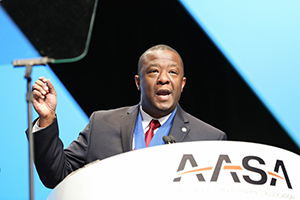 Congratulations to Thomas S. Tucker, superintendent of Princeton City Schools in Cincinnati, Ohio, who has been named 2016 AASA National Superintendent of the Year!
Congratulations to Thomas S. Tucker, superintendent of Princeton City Schools in Cincinnati, Ohio, who has been named 2016 AASA National Superintendent of the Year!
Tucker’s selection was announced February 11 at the National Conference on Education hosted by AASA, The School Superintendents Association. He was one of four finalists for the honor; others included Pamela Moran of Charlottesville, Virginia; Steven Webb of Vancouver, Washington; and Freddie Williamson of Raeford, North Carolina.
10 Feb2016
By Zachary VanHouten
You still have time to apply for the 2016 Holocaust Institute for Teacher Educators (HITE), a week-long, all-expenses-paid professional development opportunity in June at the U.S. Holocaust Memorial Museum in Washington, DC. The deadline for applications has been extended until March 4!
AACTE member faculty are invited to apply through our online application. For more information, read this article or contact me at zvanhouten@aacte.org.
Be sure to also stop by the HITE concurrent session at AACTE’s 68th Annual Meeting in Las Vegas! The session (Education Under the Third Reich: A Case Study for the Ethics of Teaching) is scheduled for Thursday, February 25, at 10:30 a.m. in Grand Ballroom E. Add the session to your personal schedule through our Online Event Planner.
 Educators Rising, the national network supporting high school students who are interested in the education profession, seeks comment on its brand-new draft standards by April 24.
Educators Rising, the national network supporting high school students who are interested in the education profession, seeks comment on its brand-new draft standards by April 24.







 The growing conversation, contentious or not, in the teacher preparation community at large about how to prepare great educators is good for the profession and PK-12 students—and is also helping to improve edTPA support and assessment, Stanford University’s Ray Pecheone told 350 educators at the recent AACTE Annual Meeting.
The growing conversation, contentious or not, in the teacher preparation community at large about how to prepare great educators is good for the profession and PK-12 students—and is also helping to improve edTPA support and assessment, Stanford University’s Ray Pecheone told 350 educators at the recent AACTE Annual Meeting.

 The 28th annual seminar of the
The 28th annual seminar of the  The American Association of State Colleges and Universities (
The American Association of State Colleges and Universities ( The
The  Congratulations to Thomas S. Tucker, superintendent of Princeton City Schools in Cincinnati, Ohio, who has been named 2016 AASA National Superintendent of the Year!
Congratulations to Thomas S. Tucker, superintendent of Princeton City Schools in Cincinnati, Ohio, who has been named 2016 AASA National Superintendent of the Year!